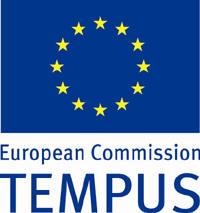Using AI to control energy for indoor agriculture
30 September 2024
Published online 2 January 2013

One of the main impediments researchers face in Lebanon is the lack of appropriate support to manage and administer research projects. A 1-million euro fund will finance new administrative offices in universities to help manage grants and contracts, leaving scientists more time to focus on research.
The Innovation and Development of Academic-Industry Partnerships through Efficient Research Administration in Lebanon (IDEAL) programme, launched in early December 2012, will also help forge links between local researchers and their international counterparts, while working with industry to identify research priorities and commercialize any innovative ideas.
"Lebanon as a country lags behind our American and European counterparts in publishing papers, in getting patents out, in full-time faculty members and the number of PhD students and programmes," says Fadia Homaidan, the director of the Office of Grants and Contracts at the American University of Beirut (AUB), which is taking the lead in the EU-backed project.
Setting up offices for grants and contracts in other Lebanese universities should help win more research funding, monitor money spent and evaluate the success of research projects, adds Homaidan.
The three-year programme is funded by Tempus, an EU scheme started in 1990 to support the modernization of higher education in 27 countries in the Western Balkans, Eastern Europe, Central Asia, North Africa and the Middle East.
According to the agreement, universities participating in IDEAL must continue funding the newly established grants and contracts offices after the programme ends in three years.
Business opportunities
"Research is the basis for societal development, and research can also be the basis of business," said Maria Circella of the University of Bari in Italy, one of the European partners in the project.
The new offices will not only help universities attract research funding from the public and private sectors, but will also help protect universities' copyrights if they develop any products.
"Currently we either don't protect the ideas that come out, or big companies come and try to get an easy contract," said Imad Elhajj, an associate professor of engineering at AUB who expects the programme to lead to more opportunities to collaborate. "It's important to have these offices that are familiar with the rules of intellectual property and technology transfer, licensing and negotiating with companies and investors."
Elhajj says that researchers and businesses in Lebanon will benefit, especially in areas like instrumentation, biomedicine, computer hardware, mobile applications, cyber security tools and software, particularly in the Arabization of existing software.
Although the programme can also help less lucrative fields of research such as the social sciences, it will probably have the greatest impact in fields like engineering and computer science, which are more likely to result in tangible products.
doi:10.1038/nmiddleeast.2013.182
Stay connected: